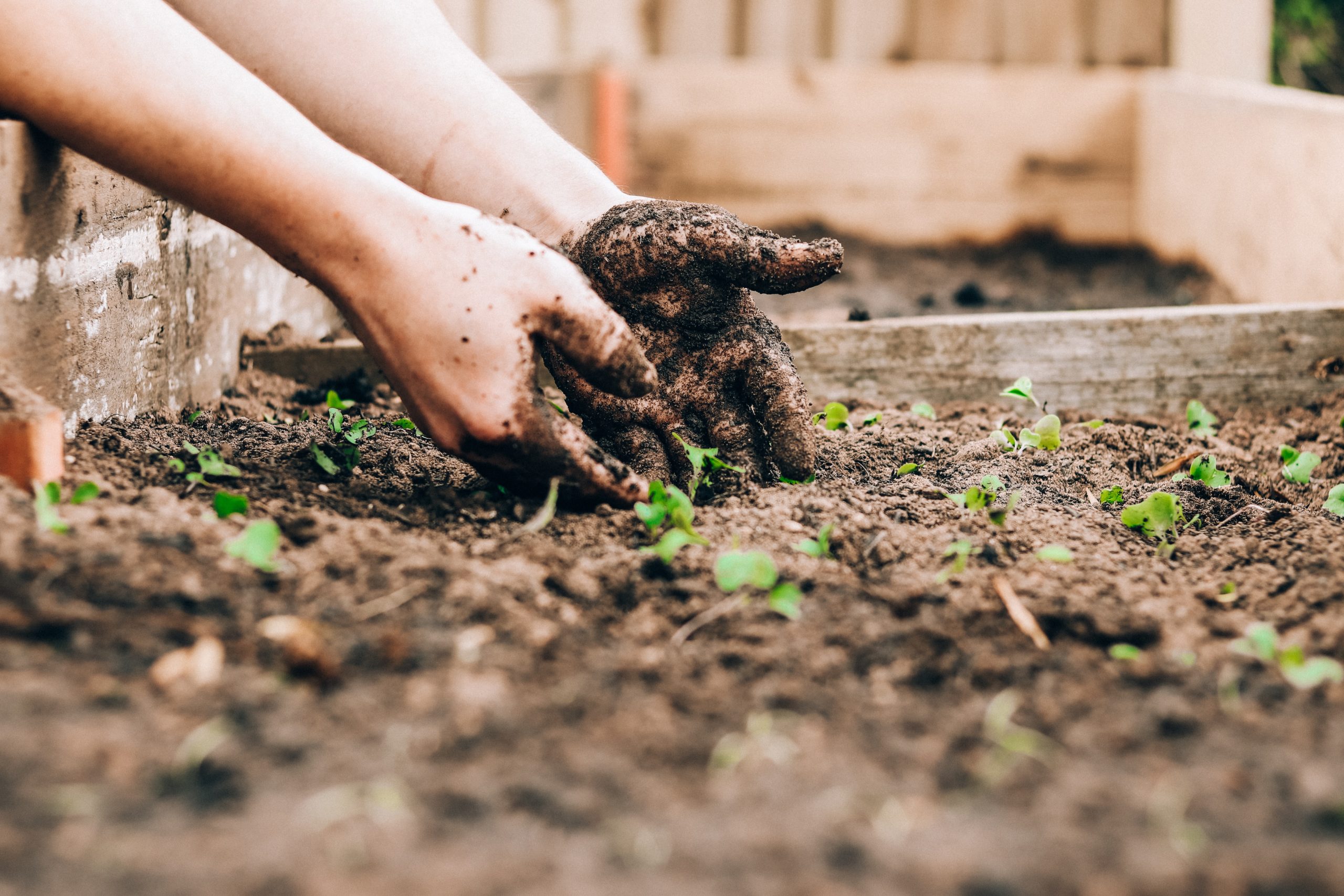Why Should We Compost? (Hint: It Greatly Reduces Our Landfill Emissions)

Organic composting has become a popular topic over the past few years, as homeowners, offices and communities work together for a more sustainable waste management future. If you’re not familiar with composting, it’s simply the process of disposing of food and other natural waste and recycling it through natural decay, which creates compost that can be re-used as fertilizer.
Not only does organic composting lead to a cleaner environment, it just may be the future of green living and can help solve our global landfill problem. Here are five reasons to consider composting next time you head to the garbage can:
1. Organic Compost Helps Reduce the Harm of Greenhouse Gases
Typically, when we dump our waste into the trash, we don’t think twice about it until it’s time to put it on the curb each week. From there, our garbage is collected and taken to the local dump. What we often don’t realize is that our waste disposal is causing a significant impact on the environment––and not in a good way. Waste that sits in landfills creates toxic greenhouse gases that are proven to have a negative effect on our environment. According to the EPA, landfills are the third-largest source of methane emissions in the US. Our trash that is sent to the incinerator ultimately produces both carbon dioxide and nitrous oxide, which produces on average more CO2 than a common power plant. Food waste that is not disposed of properly and sits in a landfill also does not have the moisture or air it needs to naturally decompose, leading to the production of methane, which is another greenhouse gas.
Ultimately, composting is one of the best and simplest ways to reduce greenhouse gases from landfills. In 2018, recycling and composting saved over 193 million metric tons of carbon dioxide equivalent. Furthermore, it is estimated that by further implementing composting across the US and globally, 2.1 to 3.1 Gigatons of CO2 could be sequestered. This is comparable to the emissions that could be reduced from taking almost 42 million cars off the road in a year.
2. Composting Will Significantly Decrease our Mounting Landfill Problem
Today, landfills across North America are quickly reaching max capacity. Approximately 24% of landfill waste is actually organic material! If everyone took the time to properly compost, we would significantly reduce our landfill use and free up more space for natural environments to grow. Beyond that, we spend billions of dollars on waste management each year. In the United States, the average cost to municipal governments to dispose of waste was around $55 per ton in 2019. With the United States generating more than 267 million tons of municipal waste in 2017 and sending two-thirds of that to landfills and incinerators, just think of all the additional dollars that could be spent on sustainable initiatives. Composting allows us to significantly reduce the waste that is attributed to landfills, while turning the bi-product into something practical for our yards.
3. Creating Organic Compost Means Less Need for Commercial Soil
Considering compost is one of the world’s most natural substances, it’s surprising to think that most soil is commercially graded and added with fertilizers and pesticides that not only damage our environment––but could be dangerous to our health long-term. The more that organic compost is made available through human consumption, the less we need to commercially produce soil for daily use. This not only cuts back on environmental damage in our own backyards, but reduces the need for factory production and plastic bagging in the process––another win for reducing our greenhouse gases! Some research has found that synthetic nitrogen fertilizer application decreases soil’s microbiological diversity (that is, bacteria, fungi, etc.) or alters its natural microbiological composition in favor of more pathological strains––another problem that is becoming more prevalent with changing climate. The benefits of composting just keep going!
4. Organic Composting Leads to a More Diverse and Healthy Ecosystem
Composting also helps increase biodiversity, by attracting and feeding worms, fungi, birds and other animals that help our ecosystem––a win-win! Organic compost is not only great for reducing landfill waste, but can help aid in reforestation, wetlands restoration, and habitat revitalization efforts by improving contaminated, compacted, and marginal soils. By introducing compost to unhealthy soil, the new bacteria helps balance the soil’s PH and controls the erosion overtime, allowing for new healthy soil to take hold and support its growing environment and animals alike.

5. Composting Brings Communities Together
One surprising benefit to composting is its ability to bring people together. Gardening, specifically community gardening, is one of the many ways to find similar environmentally-minded individuals to connect with. By finding a community garden, you can practice implementing organic compost into a thriving garden, but also reap major health benefits. There are multiple studies that find working with dirt can be beneficial towards mental health, as well as forging a connection with the natural world. One of the best ways to practice conservation and sustainability is by spending time connecting with nature and experiencing it firsthand.
By playing a role in helping maintain a healthy environment, we naturally become more committed to eco-friendly practices in our daily life. Composting ultimately provides huge benefits in reducing our greenhouse gases and contributing to an overall healthy ecosystem––but it also provides us a chance to give back to Mother Earth.


